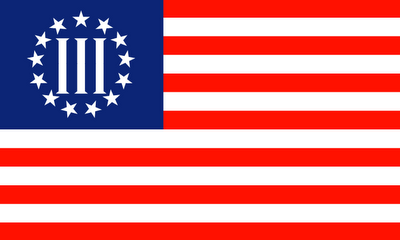Are Social Media Companies Disproportionately Censoring Conservatives?
Written by Kevin Catapano on 08/01/2019
Three weeks ago, President Trump hosted a summit at the White House during which a bevy of right-wing personalities, influencers and provocateurs descended upon the nation’s capital to condemn the alleged censorship of conservative viewpoints on social media by big tech companies. “A big subject today at the White House Social Media Summit,” tweeted the president, “will be the tremendous dishonesty, bias, discrimination and suppression practiced by certain companies.” While many on the right, including the president, are packing heavy accusations, nobody appears to be armed with sufficient evidence of guilt.
In August 2018, a Media Research Center/McLaughlin & Associates poll found that 65 percent of “self-identified conservatives” believed that companies like Facebook, Twitter, and YouTube were intentionally stifling their views, with 67 percent of respondents reporting that they trusted Facebook, specifically, less than they did the previous year. The company’s decision to ban some prominent right-wingers including Alex Jones and Milo Yiannopoulos in the spring couldn’t have helped, and if recent polling is any indicator, little has changed in a year’s time.
According to a Morning Consult poll last week, 60 percent of Republican voters believe that “social media companies practice conservative bias and prevent the spread of conservative content,” while 42 percent of all voters say that it must be a priority for the Trump administration to address political bias on social media platforms. Unsurprisingly, the poll found that Republican voters are approximately four times as likely as Democratic and independent voters combined to believe in the alleged bias. Holding true to the principles of laissez-faire, only 9% of Republicans think the Trump administration ought to impose content moderation polices on the private companies.
The left’s general refusal to believe in the allegations of bias is unsurprising given that the complaints are emanating from its political opposition. The tech companies’ vehement denials of the accusations are generally to be expected given that their staffers overwhelmingly identify with liberal ideologies. The right’s widespread acceptance of yet unsubstantiated allegations, however, is surprising, particularly given its support for strict adherence to due process. So the question remains as to a solution. If the majority of Republicans believe that private social media companies are censoring conservative viewpoints but only a select few belief the government should impose anti-censorship regulation, then what exactly is to be done, particularly when considering the fact that private companies have the right to ban whomever they please? While there is an argument to be made against the censoring of particular individuals, there is still insufficient evidence to prove that those individuals are disproportionately on the right or that the alleged censorship is even effective. In fact, there may be evidence to the contrary.
Following President Trump’s summit, prominent conservative attendees have seen an increase in their social media influence. According to a report in the Washington Post, “In the nearly two weeks since the summit, 15 of the event’s invitees have seen their Twitter audiences grow by a combined 197,000 followers — a 75 percent jump over the number of followers they’d gained in the same time span before the event.” Further, the banning of right-wingers has also been accompanied by the censoring of some on the left—namely, Nation of Islam leader and perennial anti-Semite Louis Farrakhan.
If conservatives are being censored on social media at a disproportionate rate to their counterparts on the left as the result of a deliberate attempt to discriminate against differing views, the proof of such practice would undermine the public’s trust in social media, further inflame political tensions, and hinder the right’s ability to compete with the leftist mainstream media. But while it’s certainly possible that a partisan operation could be occurring behind the scenes, masked by cryptic algorithms and vague press releases, the hard evidence remains scant thus far.
Nevertheless, the majority of conservatives and much of the general public believe that social media companies are deliberately censoring disagreeable political viewpoints with bans, suspensions and ambiguous reports of policy violations. If this is actually the case, then we must return to our search for a solution. The first step in the process is to provide evidence, and the Trump White House has asked for just that, announcing in May, “No matter your views, if you suspect political bias caused such an action to be taken against you, share your story with President Trump.”
Ultimately, these are hefty allegations being levied against big tech companies that do, after all, enjoy the presumption of innocence. If conservatives truly believe that they’re being actively discriminated against, there’s only one thing to do: Prove it.
(Photo: Antonella Beccaria/Flickr/CC BY-SA 2.0)
Disclaimer: The views and opinions expressed in this article are those of the authors and do not necessarily reflect the position of Heroes Media Group





